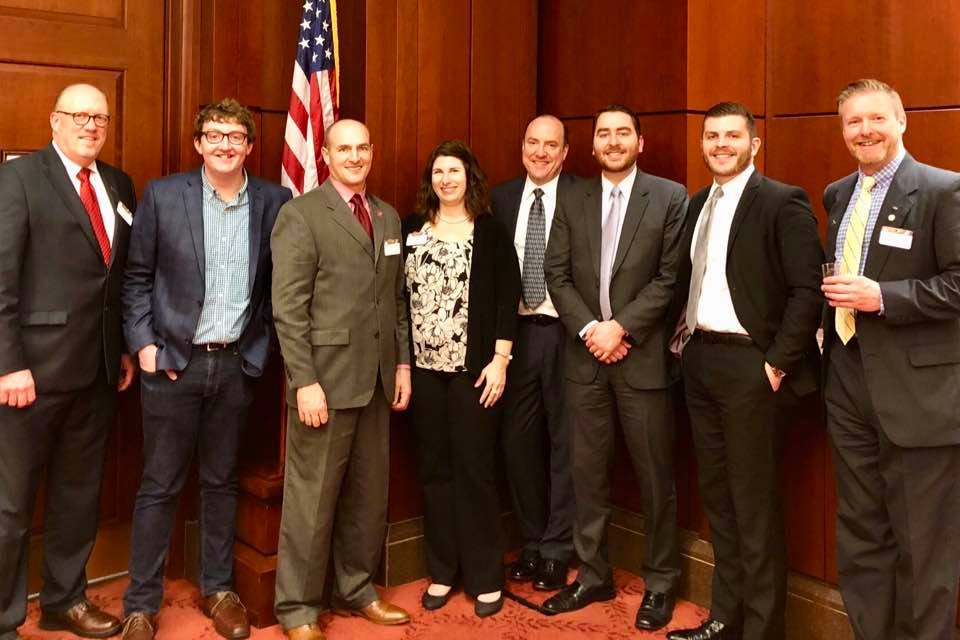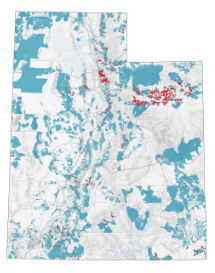This afternoon, the Geospatial Data Act (GDA) was introduced in the Senate by Senators Hatch (R-UT), Warner (D-VA), Heller (R-NV), Wyden (OR), Boozman (R-AR) and Klobuchar (D-MN) as S.2128 and in the House by Representatives Westerman (R-AR) and Moulton (D-MA) as H.R.4395. NSGIC has supported the GDA in a few different forms, it having been introduced in a previous Congress, as well as having undergone revisions since its last introduction. It has retained its critical core – developing a national spatial data infrastructure (NSDI) that will significantly improve government services for citizens across the country.

Working with partner organizations, we delivered a GDA support letter that included other well-respected national organizations and geospatial technology and services companies. It is the strongest showing of support for the GDA that has ever been garnered. I had the opportunity to join a few NSGIC colleagues – Cy Smith (OR), Shelby Johnson (AR), Dan Ross (MN) and our executive director, Molly Schar – for a Capitol Hill GIS Day reception we co-hosted with AAG and Esri. It was an excellent opportunity to speak with lawmakers and their staff members about why the GDA is so important, and it also gave us a chance to talk with the other nonprofit and corporate representatives in the room who are our partners in supporting this legislation. With transparent and coordinated advocacy efforts, we can leverage the momentum building in the geospatial community for this bipartisan, “good government” bill.
As I said in my remarks during the reception this afternoon, developing a national spatial data infrastructure is a concept that we have struggled with for the past 24 years – since the signing of Executive Order 12906 in 1993. The NSDI, as a concept, has mostly been an federal interagency pursuit, with little comparatively little consideration to harnessing the significant geospatial capabilities that state, tribe, regional or local governments, and the commercial sector have developed in the past two decades. The GDA codifies a strong multi-sector governance structure for NSDI strategy and activities, and it mandates Congressional oversight of federal geospatial expenditures. There are two specific provisions of this bill that NSGIC believes will be difference makers toward the achievement of a fully functional, and truly 'national' spatial data infrastructure.


